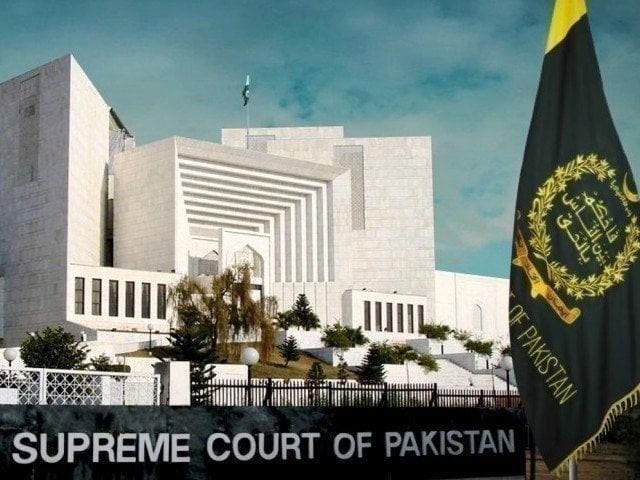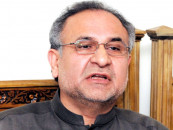'Judge's consent needed for transfer'
Constitutional bench states a judge's seniority is not affected in India due to a transfer

The Supreme Court on Tuesday examined the procedure for transferring judges in India, noting that unlike the neighboring country, Pakistan's Constitution requires a high court judge's consent before they can be transferred to another high court.
A five-member constitutional bench (CB) led by Justice Muhammad Ali Mazhar resumed hearing multiple petitions challenging the transfer of three judges from provincial high courts to the Islamabad High Court (IHC), as well as the subsequent change in the IHC judges' seniority list.
During the proceedings, Hamid Khan, representing the Lahore High Court Bar, continued his arguments, stating that several legal aspects of judges' transfers from high courts need thorough consideration.
Justice Muhammad Ali Mazhar remarked that in India, judges' consent is not required for transfers, and such decisions are made in consultation with the chief justice of the high court of that state. "In our system, however, obtaining a judge's consent for transfer is a constitutional requirement," he noted.
Justice Naeem Akhtar Afghan observed that India follows a unified cadre system for high court judges, while Pakistan does not have a similar system for seniority. Justice Shakeel Ahmed added that in India, the seniority list for high court judges is uniform.
Hamid Khan argued that in India, consultation with the chief justice is mandatory prior to any transfer. He said consent is essential when transferring judges and that, under Section 3 of the Islamabad High Court Act, consultation is required before a transfer or new appointment.
"The selection of judges for transfer must be based on merit and that the executive branch should not hold the authority to nominate judges for transfer. This power should rest solely with the chief justice," he asserted.
Hamid Khan pointed out that instead of transferring judges to the IHC, new appointments are often made. "In a recent case, the IHC acting chief justice was consulted regarding the transfer of a judge from Balochistan, but the advice for transfers was not approved by the Cabinet," he added.
Idrees Ashraf Advocate, representing PTI founder Imran Khan also presented his arguments. He stated that the transfer notification did not mention the tenure of the transferred judges and claimed that such transfers could lead to discrimination among judges within the same high court.
Justice Mazhar asked the counsel if Article 25, which ensures equality before the law, should be considered in the process of judges' transfers. He also inquired whether the counsel would be satisfied if the transfer tenure was fixed at two years, noting that the core issue remains the matter of seniority.
The court later adjourned the hearing until 9:30 am today (Wednesday).









1724319076-0/Untitled-design-(5)1724319076-0-208x130.webp)














COMMENTS
Comments are moderated and generally will be posted if they are on-topic and not abusive.
For more information, please see our Comments FAQ